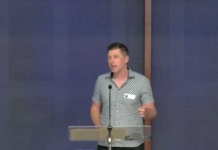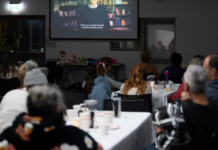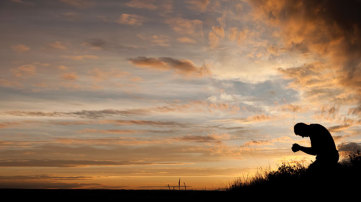Jack was a regular part of the church as a kid with his family. One of those fun, outgoing, ‘joy to have around’ kids. He was a great participator in the kids program and part of a faithful Christian family. But then somewhere in his early teens Jack just didn’t get to church as often and then one day he just stopped going all together. Now all these years later I don’t even know if he’s still talking to God.
Maybe you know a similar story.
We don’t tend to talk about these stories much though. We stay focused on those who are here at our church right now. If our minds do become consumed with the “whatever happened to Jack?” question, then as a church community we can ease our consciences by saying that raising children with faith is primarily the responsibility of parents. “We provided Sunday School and Youth Group”. As parents, we might have wished for a stronger youth group or more contemporary style of service that the kids would like. Maybe we even tried changing churches to get that.
The fact remains – something isn’t working! The kids are not staying. Even back in 2001 the National Church Life Survey found that the numbers of children attending a Baptist church with their parents takes a significant dive between the ages of 10 and 15.1 There is also a second exodus of teenagers at around 18.
It’s not only happening here in Australia. Across the western world there is this growing realisation that we are losing kids. Now before you start thinking we just need to get a really good youth pastor, I need to let you know that the research says some of the kids are leaving in their heads and hearts before they even reach high school.
Jason Gardner in Mend the Gap (2008) asks “If the church is haemorrhaging young people, we have to ask ourselves if it’s because we address the issue of discipleship too late”.
I meet many faithful people whose heart’s desire is to provide a program in their church that will help children grow in faith. They have a good kid’s program, they train leaders, they care deeply for the children. Yet, we have to admit, what we are doing now doesn’t even have an 80% success rate. Some say it’s less than 60%.
A large part of our discipling strategy for children has revolved around the imparting of INFORMATION. For a long time it was called Sunday School and while in many churches the name has changed the ideas and focus of the time spent by kids at church is the same – care for them and teach them the big story of the Bible. While the content of our programs is important, it cannot, on its own, produce disciples.
What if we were to intentionally add experiences that focus on FORMATION so faith goes deeper and is more likely to be life long?
Above, I have outlined what this could look like with ten keys or pillars of discipleship for children.
As I think back to Jack, family nurture, the big story of the Bible and a positive peer community were well and truly covered, but if I am honest, the other 7 not so much – and some not at all.
What about for the children in your church? How many pillars or keys to discipleship are you intentionally cultivating? If you would like to explore these ideas Google “Here2Stay” (www.here2stay.org.au) or contact our Association’s Children & Families team to see how your church could explore a new paradigm for faith formation.
Let’s help the next generation of Jacks to stay.
Positive Peer Community
As children grow in age the influence and importance of the peer group becomes more dominant often at the expense of parental influence. This underlines the importance of creating positive peer environments for our children
Peak Experiences
A peak experience is a vital complement to the regular activities within the faith community. Times like camps or beach mission. It’s those times when we live in community and have an extended time to connect and have that ‘wow’ factor of a bigger or special event that can really help us in our faith development
Big Story of the Bible
Children today are looking for the big story of life and the Bible provides that story. As they enter this story it is important that they discover not only the content but also that they are a part of this story – God’s story.
Family Nurture
Families (households) are the “primary faith communities” of children, and need to be supported strongly in this role. We need to see children as part of families and do church with families, not just with adults and kids.
Generational Connections
The church community is one of the few places where all ages can be found. The only trouble is that all too often we have isolated the generations within our churches from each other by creating homogenous groups. Adults here, kids out there. Life and faith could be richer and stronger if we could generate fellowship across the generational lines.
Encounters With Jesus
Our churches need to provide children with opportunities to encounter Jesus (not just learn about Him) within the everyday experiences of our programs.
Mentors and Life Coaches
In the everyday moments of life, stuff happens. Questions arise every day, small and large, about how life works and why it doesn’t work. One of the major reasons why young people choose to leave the church is because their questions about life and faith have not been answered. Life is not meant to be journeyed alone but together in community. We talk about the importance of mentors and life coaches for adults, but what about for children?
Serving in Mission
The Bible says “faith without action is dead” yet how often do we enable children to put their faith into action to serve in mission? Children need a place to serve and see the power of the gospel just like adults and to be supported as they share their faith with others.
Anchors/Rites of Passage
Many cultures are rich in significant events designed to acknowledge the stages of development of a young person within their community. Within Western culture these rites of passage are not common. What could the celebration of growing into maturity in our culture look like?
Respond with Compassion
Our children are acutely aware of the brokenness in the world. Yet we often don’t give them an opportunity to respond. What avenues can we foster where the children themselves can respond and make a difference?























